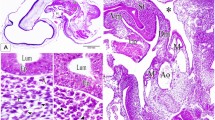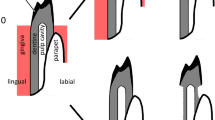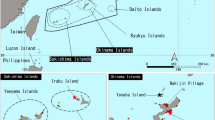Abstract
BY means of an X-ray technique1 a study of the passage of radiopaque foods through the intestine of the migratory locust, Locusta migratoria migratoriodes R. and F., and the desert locust, Schistocerca gregaria (Forsk), has been made as a preliminary to work on the absorption of stomach poisons. Two observations of immediate interest are described here.
This is a preview of subscription content, access via your institution
Access options
Subscribe to this journal
Receive 51 print issues and online access
$199.00 per year
only $3.90 per issue
Buy this article
- Purchase on Springer Link
- Instant access to full article PDF
Prices may be subject to local taxes which are calculated during checkout
Similar content being viewed by others
References
Goodhue, D., Radiography, 263 (1958).
Albrecht, F. O., Anatomy of the Migratory Locust (Athlone Press, London, 1952).
Monchadsky and Skoblo, in Uvarov, B. P., Trans. Roy. Soc., 99, 1, 1 (1948).
Campbell and Filmer, Trans. Fourth Intern. Cong. Ent. 523 (1929).
Author information
Authors and Affiliations
Rights and permissions
About this article
Cite this article
GOODHUE, D. Some Differences in the Passage of Food through the Intestines of the Desert and Migratory Locusts. Nature 200, 288–289 (1963). https://doi.org/10.1038/200288a0
Issue Date:
DOI: https://doi.org/10.1038/200288a0
This article is cited by
-
10.1007/BF00335102
CrossRef Listing of Deleted DOIs (2011)
-
Invasion of the pathogenic fungus Metarhizium anisopliae through the guts of germfree desert locusts, Schistocerca gregaria
Mycopathologia (1986)
-
Étude expérimentale de certains aspects des capacités discriminatives des larves deLocusta migratoria migratorioides (R et F) au cours de leur cycle quotidien d'activité au laboratoire
Insectes Sociaux (1965)
Comments
By submitting a comment you agree to abide by our Terms and Community Guidelines. If you find something abusive or that does not comply with our terms or guidelines please flag it as inappropriate.



